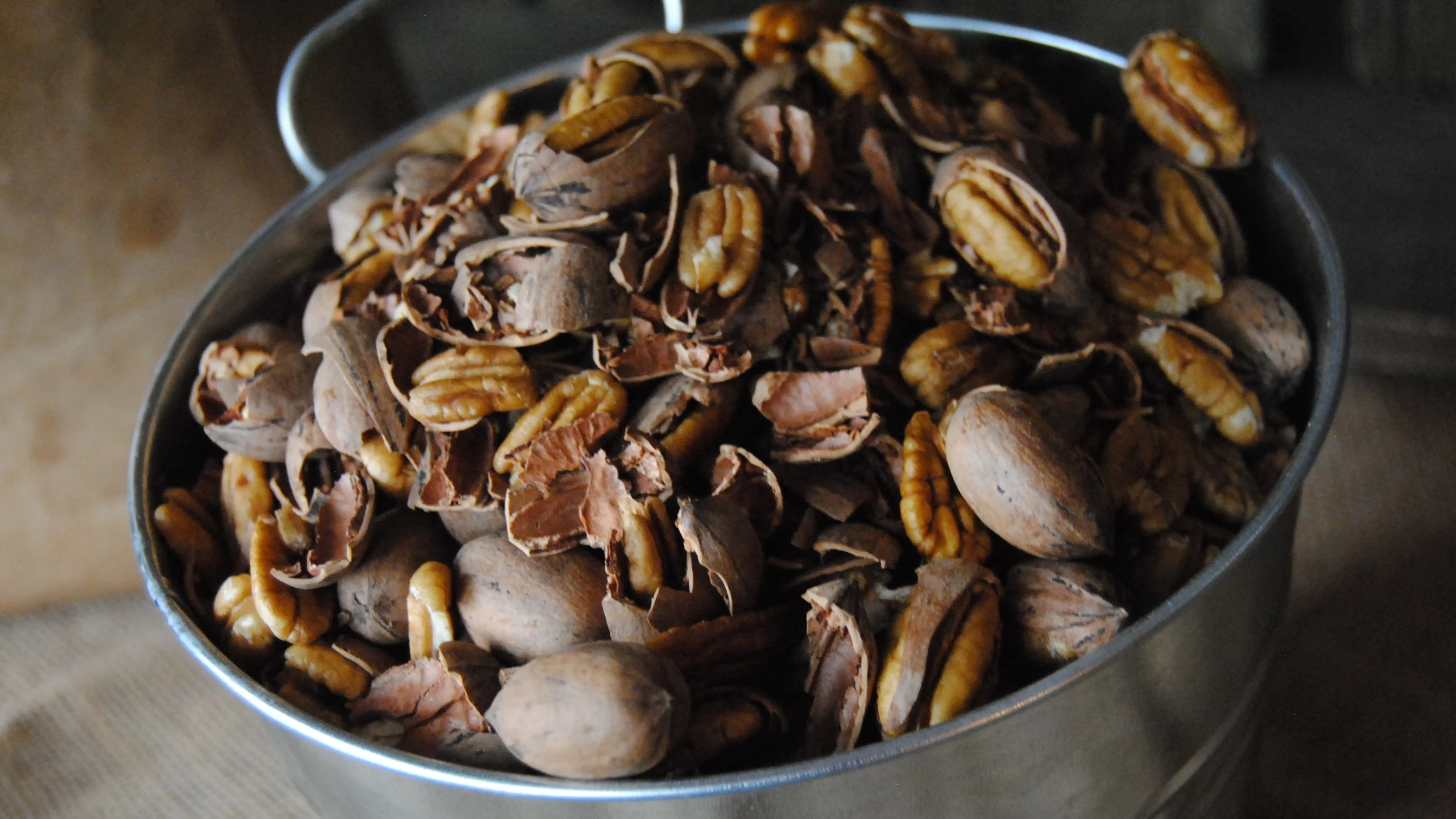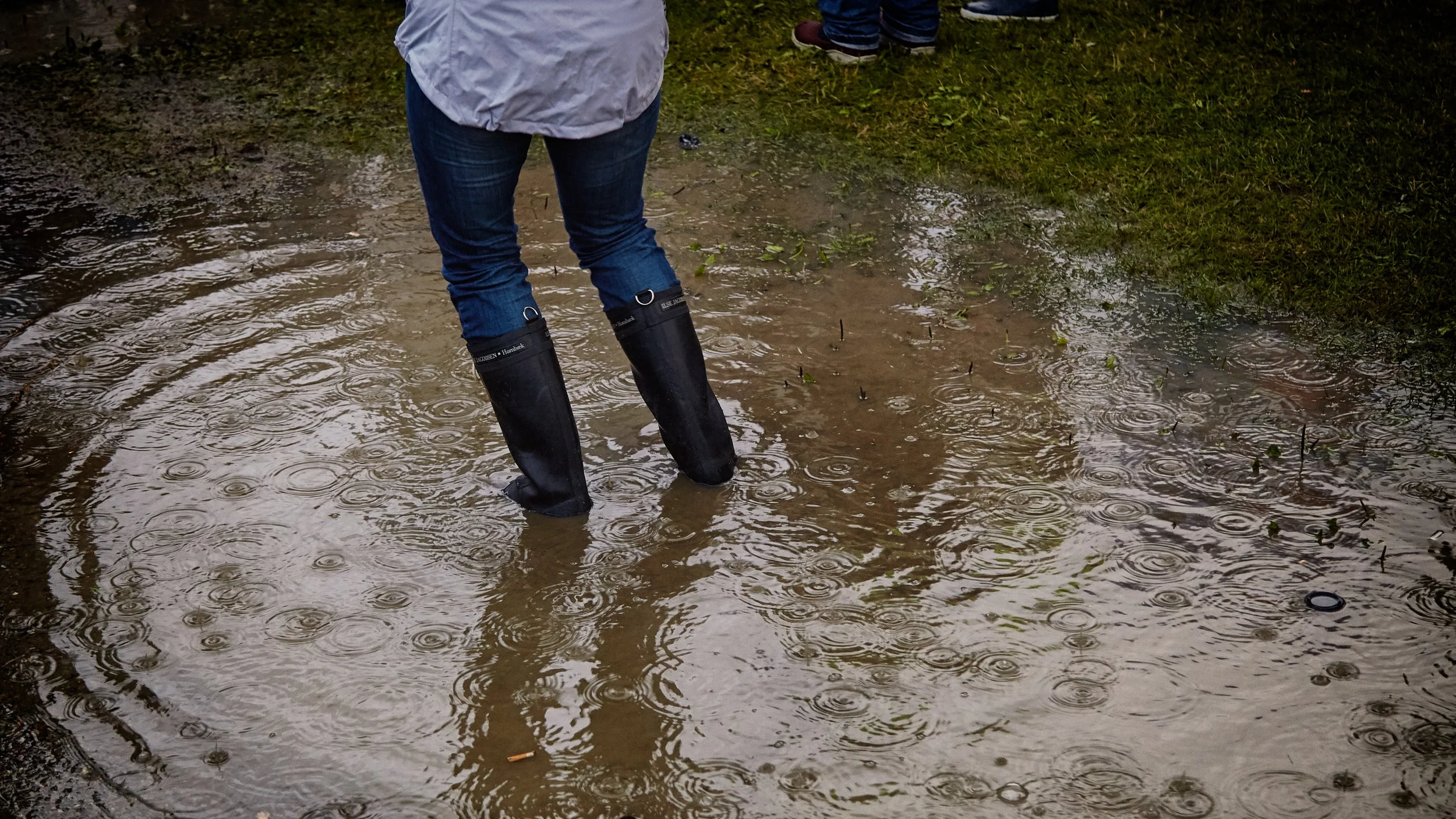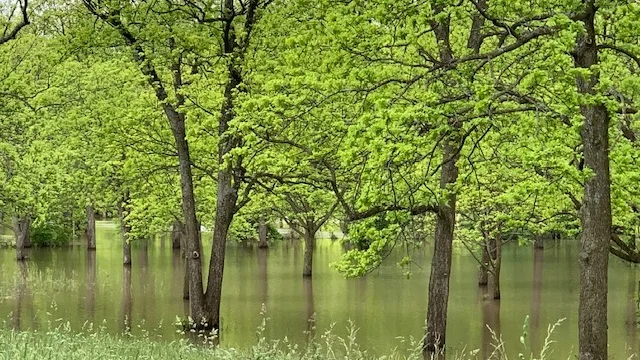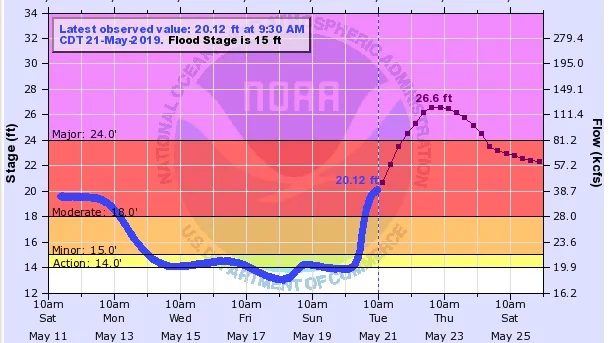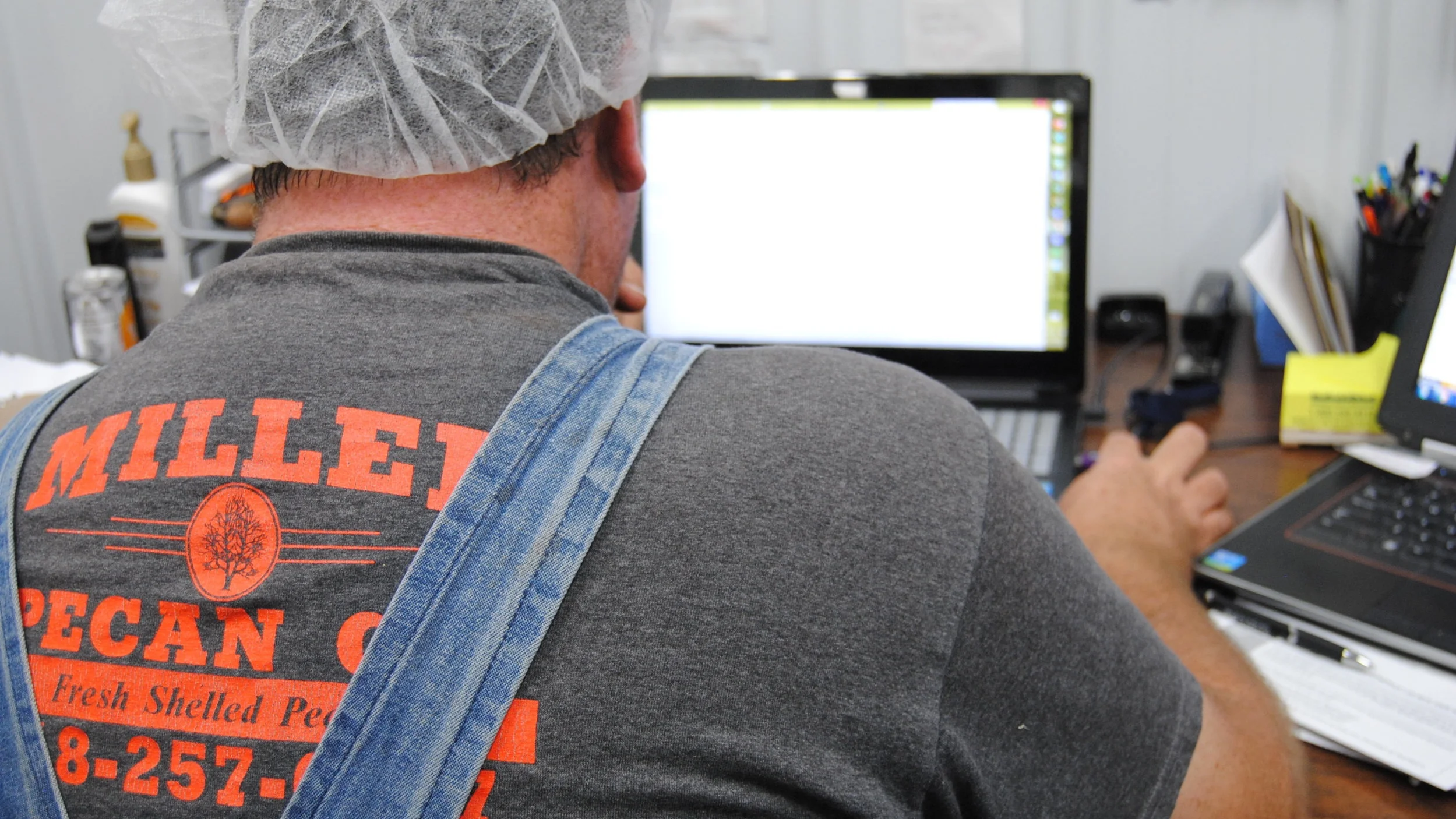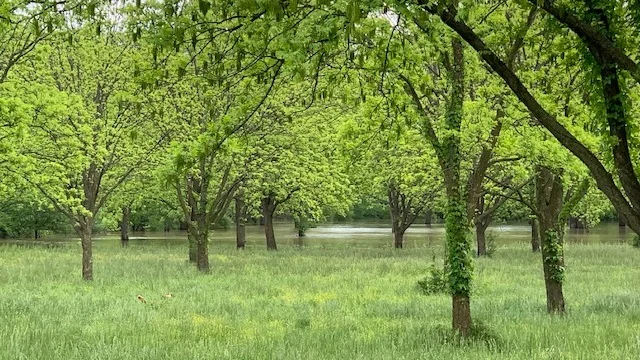The Challenge of Flooding When Growing Pecans
In our line of work, we greatly appreciate rain. Afterall, we couldn’t be in the pecan business without the help of rain. However, large amounts of rain can pose as an obstacle in our agricultural production practices. Most of our pecan groves are positioned along the river-bottoms of the Neosho River Valley. So when rain is in our forecast, we are monitoring river levels and weather conditions to ensure we are prepared to best care for our trees and livelihood.
At the end of the day, the growing conditions of our pecans- especially the black gumbo soil found primarily in the creek-beds and river-bottoms of the Neosho River Valley in which our trees flourish- are some of the largest contributors to the uniquely famous flavor found only in pecans from our part of the country. We are grateful for the opportunity to raise some of the world’s most flavorful and unforgettable pecans. But at the end of the day, we often have to add Water Monitoring Specialist to our long list of titles when producing the world’s best pecans.
Flooding can be dangerous, costly and sometimes unavoidable to many, regardless of occupation or industry. Being pecan growers, we wish to point out some flooding challenges from our perspective.
River flooding can potentially wipe out younger trees and erase years of valuable production.
Currently, many of our trees closest to the river are those that have been there for decades, so their roots and trunks are well developed and can withstand the force and wrath often associated with river flooding. Younger, less developed trees, however, are more at-risk of permanent damage associated with flooding. Younger trees can be washed away, severely stunted or even drowned entirely. Because our average planting-to-first-harvest time span is generally around 12 years, the loss of young trees can put us behind a decade in our production potential.
River levels can rise quickly, posing danger to people and farmers in the area.
We care about the safety of our family and friends. For this reason, technologies such as the Advanced Hydrologic Prediction Service help us determine when water levels will be at their highest. Offered as a service of the National Weather Service, we analysis prediction graphs called hydrographs that offer information on the stage at which the river will crest, the estimated time at which the river will crest and rate at which the river will be flowing into the area. This information allows us to arrange our schedule and plan our maintenance activities to ensure our pecan groves are tidy and well cared for and that our family and friends are safe from flood threats.
Depending on the time of year, flooding can wipe out an entire crop.
A month out from Pecan Harvest in 2018, we were shaping up to have an exceptional pecan crop yield. The nuts were filling out nicely, the kernels were plump and large, and the pecan trees were heavily loaded with some of the prettiest pecans. Shortly thereafter, our area received large continuous bursts of early fall rains accompanied by high winds that didn’t pose well for our pecans. In 2018, the river flooded, keeping us from being able to harvest the nuts that were presently on the trees. The pecans that were ready to be harvested then blew of into the water and floated downstream, unable to be saved (wildlife downstream sure had a happy winter with the abundance of pecans that floated their way). In this instance, our crop yield only equaled out to a fraction of the yield of previous average years.
When it comes down to it, we cannot control the weather. We don’t, however, let that fact keep us from doing everything we can for our trees and our family. Our responsibility as stewards of the land is to care for the land in all weather conditions to the best of our ability. Even though we can’t always control the fruits of our labor, we can end each day with the satisfaction of knowing we did everything we could to tend to the land we have the distinct honor of caring for.


